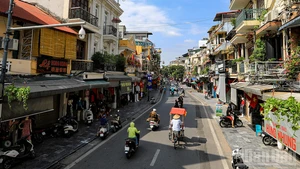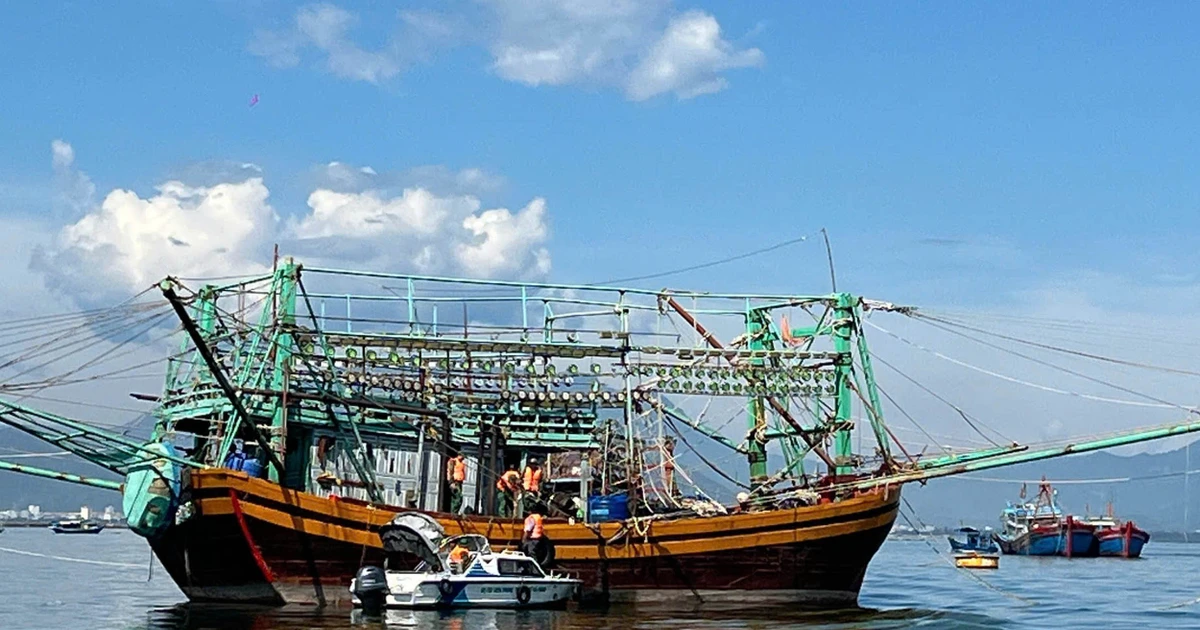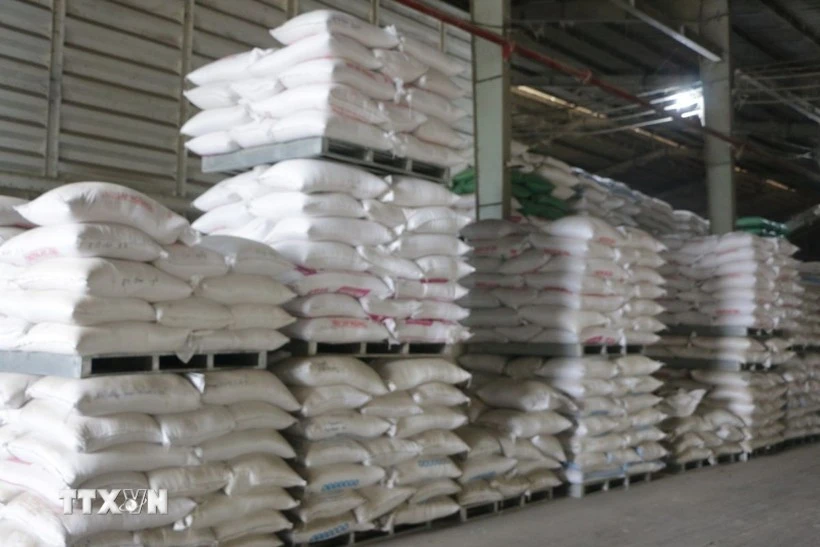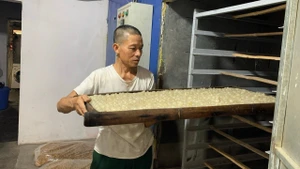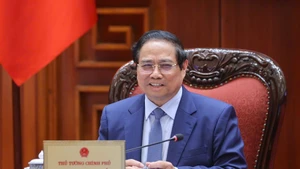Multiple difficulties
Facing the complicated developments of COVID-19, a number of business associations in Ho Chi Minh City (HCMC) have recently submitted a petition to the municipal authorities and relevant ministries asking for prompt measures to address difficulties for the affected enterprises. For example, the HCMC Tourism Association (HTA) has penned a document to the State Bank of Vietnam (SBV), the Ministry of Culture, Sports and Tourism, the municipal People’s Committee, and related units to propose the expansion of support policies for the pandemic-hit businesses.
According to HTA Chairman Nguyen Thi Khanh, the SBV Governor issued Circular No. 03 on April 2 to amend and supplement a number of articles of Circular No. 01, dated March 13, 2020, directing credit institutions and foreign bank branches to restructure repayment periods, waive or reduce interest and fees, and maintain debt classifications in order to assist borrowers affected by COVID-19. Specifically, the new SBV circular enables credit institutions to consider rescheduling debt repayment terms by an additional 12 months. However, as reality has shown, travel companies are encountering numerous difficulties in paying their debts. Some have gone bankrupt, while many others are at risk of failing to pay their debts and interest. The difficulties facing them are expected to continue in the near future as the time to welcome international visitors back has yet to be determined. Therefore, the HTA has proposed that the SBV and relevant units study and soon compose policies on the debt and interest repayment terms for the tourism sector. Specifically, the association suggests reducing the current applicable loan interest rates, maintaining debt categories, and grating the grace period for principal and interest of the entire outstanding loans. The period to restructure the repayment term (including the case of debt payment extension) is 24 months from the date the credit institution implements the restructuring process.
For export businesses, capital for production is also a big challenge. According to representatives of many enterprises, without capital, they cannot take advantage of opportunities, nor compete in the export market. The director of an export enterprise at the Dong Anh Industrial Park (Hanoi) said that when the orders have been exported, but customers’ payment has yet to be made, it will be difficult for businesses to continue to sign subsequent contracts. “We really need prestigious guarantees and joint hands from banks during the import-export process,” said the director.
Facilitating circulation of capital flow
Given the difficulties currently facing businesses, a series of credit institutions have been involved through the introduction of new loan products at preferential interest rates, together with many credit solutions, in order to assist businesses to overcome the pandemic, such as debt restructuring, rescheduling of loans, postponement and extension of interest repayments, and interest exemption and reduction. According to the Director General of Department of Credit for Economic Sectors (SBV) Nguyen Tuan Anh, as of May 2021, credit institutions had restructured debt repayment terms for nearly 258,000 customers affected by COVID-19, with outstanding loans of nearly VND337 trillion (US$14.6 billion), while exempting, reducing and lowering interest rates for more than 677,000 customers with outstanding loans of nearly VND1.28 quadrillion (US$55.49 billion). Notably, credit institutions have granted new loans at lower interest rates than pre-pandemic levels to over 480,000 customers, with an accumulated value of more than VND3.5 quadrillion (US$151.73 billion) since January 23, 2020.
In addition to implementing general support solutions, credit institutions have actively and proactively developed their own support solutions for customers and localities affected by the third and fourth waves of the pandemic. Accordingly, since early 2021, 17 credit institutions have publicly announced credit programmes and products at preferential interest rates. For example, Vietcombank has reduced the interest rates by 1% a year for VND loans and 0.5% for foreign currencies regarding all existing and new outstanding loans made to businesses and people in the two provinces of Bac Giang and Bac Ninh. Agribank has supported its branches with the highest interest rate of 2.5% to reduce new lending rates for pandemic-hit customers (the scale of support applied to outstanding loans of about VND100 trillion). Meanwhile, VietinBank has authorised its branches to reduce lending interest rates by up to 2%, with the bank’s interest and fee support levels expected to be maintained at levels at least equal to those implemented in 2020 (about VND5 trillion).
Regarding support policies to remove difficulties for aviation enterprises such as Vietnam Airlines (VNA), three credit institutions (SeABank, MSB and SHB) have issued documents committing loans totalling VND4 trillion (US$173.38 million) to the firm from the SBV’s refinancing. Credit institutions and the VNA are actively carrying out procedures and negotiating on the signing of a credit contract in order to disburse loans in late June and early July.
SHB General Director Nguyen Van Le said that in recent years, the bank has simplified procedures to facilitate businesses’ access to loans, while implementing many financing packages according to the value chain to improve the competitiveness of Vietnamese products, as well as forming value chains to build the Vietnamese brand in the international market. Meanwhile, in order to remove difficulties for export businesses, MSB has also implemented a lending programme to import-export enterprises at preferential interest rates - from only 6% per year for VND and from 3% for USD. “The comprehensive credit solution package for import-export businesses is among the MSB’s efforts to help businesses promptly remove barriers to capital flows, boost the development of import-export activities, overcome the pandemic-induced crisis, and create momentum towards achieving 2021 business goals,” MSB General Director Nguyen Hoang Linh said.
With banks’ active support in terms of capital, transaction costs, and information on the market, products and technology solutions, it is expected that enterprises will promptly overcome difficulties and restore production and business activities in order to continue to develop sustainably.






